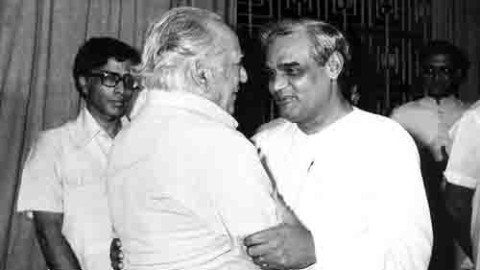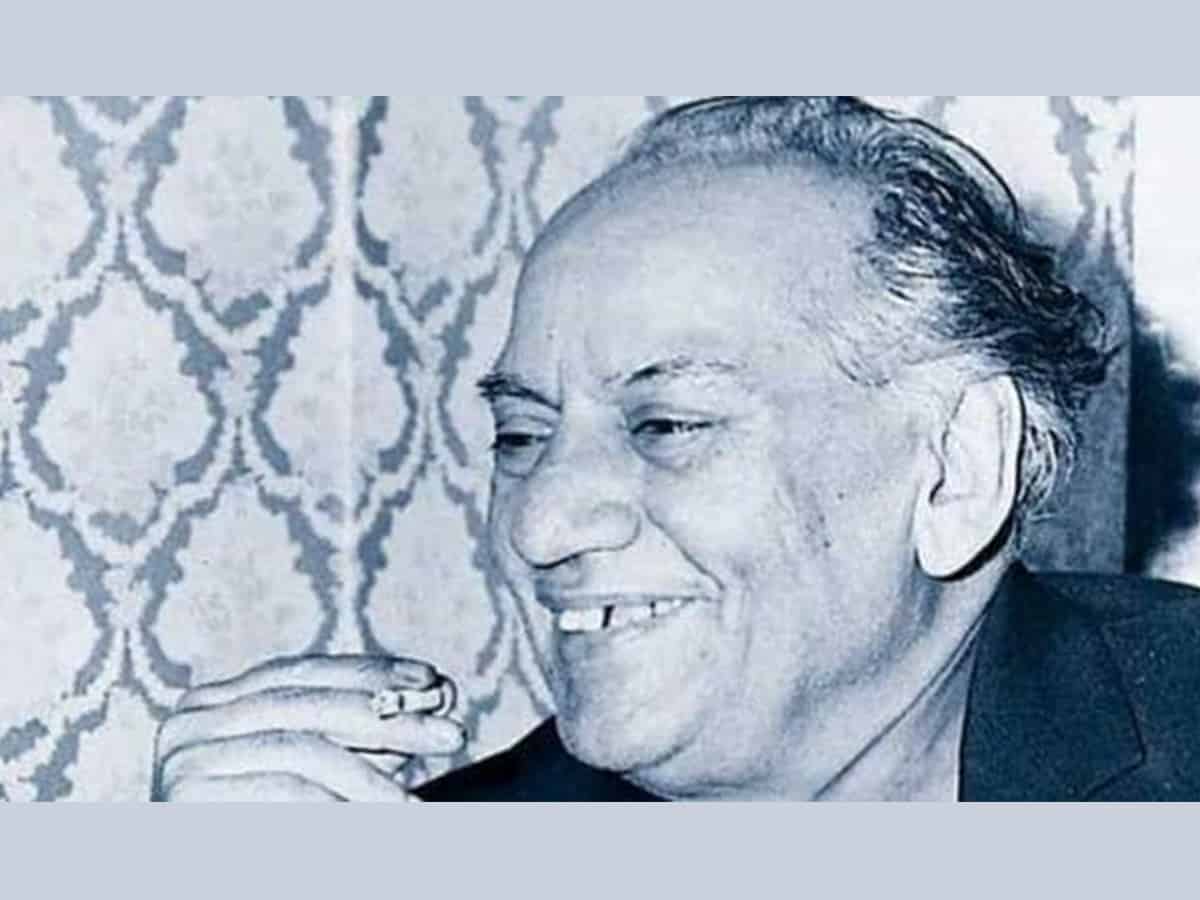Daneesh Majid
Hyderabad: The soul-stirring poem ‘Hum Dekhenge’ is a poetic pill that reinvigorates the spirit of those who not only speak truth to power, but also seek to fight it.
When they are brought to life as script on signboards or as spoken stanzas that sear through sound waves, the verses of Pakistani poet Faiz Ahmed Faiz induce resilience among socially conscious Indians as well.
Imbibing the essence of the nazm, the IIT-Kanpur students sang the poet’s immortal lines during their march in solidarity with Jamia Millia Islamia, New Delhi, students two weeks ago.
However, heeding the complaint of a faculty member who found the lines below to be “anti-Hindu,” a panel set up by IIT-Kanpur will determine whether the poem incites religious hatred or not.
Sab butt uthwaayeiN jaayeNge
Bus naam rahega Allah ka
(All false idols will be removed)
(God’s name will remain)
IIT Deputy Director Manindra Agarwal believes that this Faiz-authored rallying cry that students recited could be perceived as anti-Hindu.
Do the powers that be fear that Hum Dekhenge is a uniting cry that cuts across communal lines among protestors? Or are the mere mentions of “Allah” and “butt (idol)” in the verses below enough to set off the Islamophobic radars of those who view everything through the kaleidoscope of religion?
“Hum Dekhenge is the farthest thing from being anti-one religion and pro-another,” asserts Oudesh Bava Rani, Vice President of the Hyderabad Urdu-Hindi Progressive Writers Association.
A staunch advocate of Faiz’s progressive ideals of social justice and equality, she believes that no religion forbids anyone from standing up to injustice against anybody.
Besides the symbolism and other figurative elements that detractors willfully overlook in those “problematic” two lines, the broader historical context somehow escapes many.



Former Hyderabad Central University Urdu Professor Baig Ehsas elaborates, “This anthem was a scathing indictment of any form of extreme authoritarianism — be it modern day fascism or even the high-handedness of medieval emperors.”
This cannot be more apparent in the lines below:
Uthega “anal-haq” ka naara
Jo main bhi hooN aur tum bhi ho
There will rise one cheer- “I am God!”
Who I am, and so are you
The cheer of anal-haq refers to the Persian mystic and poet Mansur Al-Hallaj who declared “I am God” and thereby attracted the wrath of the Abbasid Caliphate for equating himself with God.
Noted city historian and heritage conservationist Sajjad Shahid jokes, “Technically Muslims should be disappointed at this anthem.”
Plus, the “Who I am, and so are you” precludes any sort of othering or exclusion.
Besides verses that include historical and Sufi allusions, there is another line which Shahid feels can be misconstrued or painted as Islamic.
Hum ahl-e-safa mardood-e-haram
Masnad pe bithaye jayenge
Then we of clean hearts who have been rejected by the sacred sanctuary
Will be invited to that altar to sit and govern
He clarifies, “Haram for many signifies the prayer hall of many prominent mosques in Saudi Arabia. Yet the haram doesn’t symbolize a religious sanctuary but rather those who have erected empires in the name of ideology.”
The secularism embedded in these powerful stanzas might be revolutionary. However, they are not averse to any particular faith but rather against tyranny that is sometimes disguised as religion, he clarified.
Prof. Baig also stresses the fact that the word idol doesn’t represent any deity or shrine. Rather it means a false icon.
Interestingly enough, the ruling dispensation recently unveiled a statue of Atal Bihari Vajpayee in Lucknow. Sajjad Shahid informs “It is a known fact that the former BJP Prime Minister was a great fan of Faiz Ahmed Faiz.”

If only the poet Prime Minister was alive, he perhaps could have been an advisor on this panel that balks at anything that just sounds “Islamic.”
Till then, the immortal lines will be the cry for many fighting to save India’s soul:



